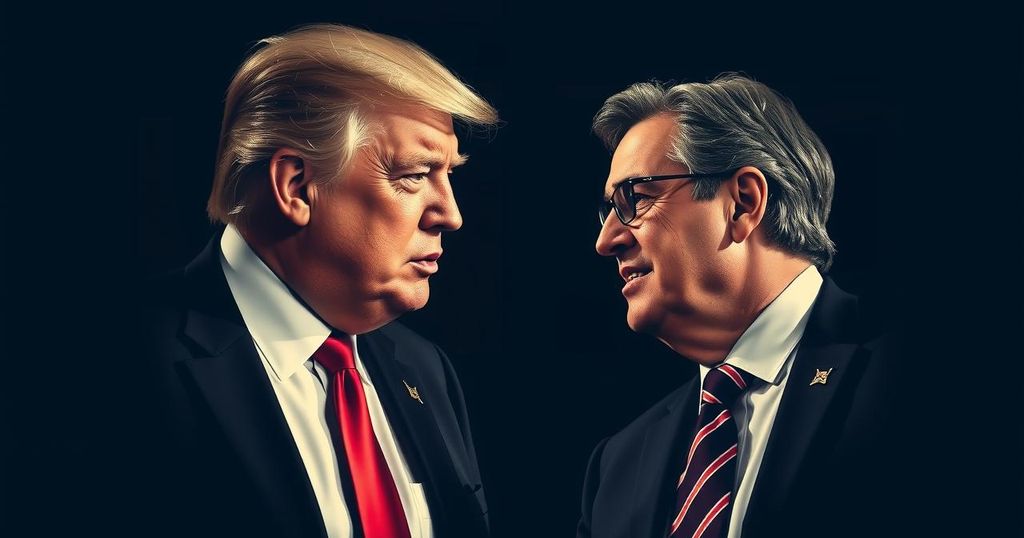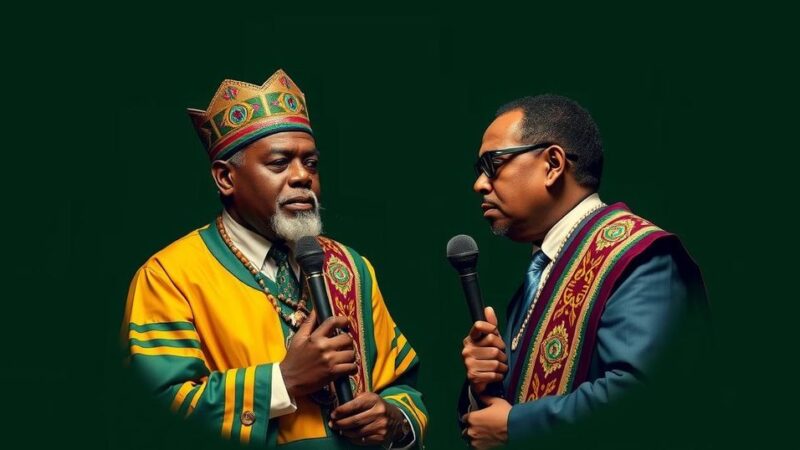Former President Donald J. Trump has accused the U.K. Labour Party of interfering in the U.S. presidential election by recruiting volunteers for Vice President Kamala Harris. The Trump campaign filed a complaint alleging this activity constitutes foreign interference. Prime Minister Keir Starmer refuted the claims, stating that Labour activists volunteered independently and without compensation. This incident raises concerns about foreign involvement in American elections.
Former President Donald J. Trump has accused the U.K. Labour Party of engaging in what he describes as foreign interference in the American electoral process. This allegation comes as part of a complaint filed by Trump’s campaign with the Federal Election Commission, detailing that members of the Labour Party allegedly recruited volunteers to support Vice President Kamala Harris in critical swing states. In the complaint, Trump’s legal team asserted that the Labour Party’s efforts, including meetings where Labour officials provided advice to Harris’s campaign, represent clear instances of meddling in U.S. elections. Responding to Trump’s charges, Prime Minister Keir Starmer of the Labour Party dismissed the claims, clarifying that the volunteers operated independently and without compensation. He emphasized that Labour activists have historically volunteered in U.S. elections as private citizens rather than as representatives of the party. During a recent engagement in New York City, Mr. Starmer expressed that regardless of the ongoing electoral disputes, he intends to cooperate with any individual elected as President of the United States by the American electorate, stating, “As Prime Minister of the United Kingdom, I will work with whoever the American people return as their president in their elections, which are very close now.” Starmer reiterated that the involved Labour activists would finance their own travel and lodging arrangements while participating in American campaigns. This controversy illustrates the complex dynamics between U.S. politics and international actors, highlighting the sensitivity surrounding foreign involvement in domestic elections. Additionally, it underscores the tight-knit political relationships that can exist between political parties across borders, despite differences in partisan allegiance.
The issue of foreign interference in elections has gained significant attention in recent years, particularly with regard to the engagement of non-U.S. individuals and organizations in American political campaigns. Such involvement raises questions about the legality and ethical implications of foreign entities influencing the electoral process. This latest complaint by the Trump campaign challenges the longstanding precedent of international volunteers participating in U.S. elections, particularly from allied nations like the United Kingdom. The Labour Party’s history of volunteering aligns with democratic practices where activists from various countries engage in campaigns for candidates with whom they share ideological common ground.
In summary, the allegations brought forth by former President Trump concerning the U.K. Labour Party’s involvement in the U.S. electoral process highlight significant concerns regarding foreign influence in domestic politics. Prime Minister Keir Starmer’s response underscores his commitment to maintaining diplomatic relations regardless of political controversies. This situation serves as a reminder of the intricate relationship between domestic electoral integrity and international political collaborations.
Original Source: www.nytimes.com






